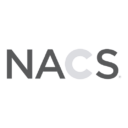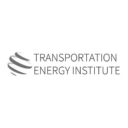
Insights
The Top Upcoming Card Brand Changes All Merchants Should Know About

Any time the card brands introduce a new change, it has potential to carry significant impact to the merchant community. While some changes may manifest as more of an FYI for merchants, others may necessitate merchants to reexamine their cost of acceptance. In this article, we’ll examine the top merchant-facing changes recently announced by Mastercard, Visa, AMEX, and/or Discover.
1. Mastercard Installments
Mastercard has rolled out an instant installment program that took effect on February 15, 2022. Rather than adopting an opt-in model, Mastercard has structured the program such that merchants are automatically enrolled in the plan by default.
Merchants that wish to continue providing installment options to consumers via Mastercard should be aware that transactions processing through this service will include an additional network fee and a higher interchange rate.
“Those opting out of Mastercard’s installment program should work with their acquirers to carefully detail all considerations,” advises Jim DuBoyce, W. Capra’s Managing Director of Payments. “Depending on whether or not you have franchise relationships and how the agreement with franchisees may be structured, opting out may pose varying degrees of complexity.”
2. Mastercard Digital Enablement Fee and Related Changes
Effective April 1, 2022, Mastercard will double the Digital Enablement Fee (DEF) to 0.02% for Card Not Present (CNP) transactions in the US. The fee will have a minimum billing of $0.02 and a maximum of $0.20 per transaction. Concurrent with the DEF change, Mastercard will be eliminating the fees for CNP Address Verification, the CVC2 Authorization fee, and the Account Inquiry Status fee.
3. 8 Digit BIN Expansion
In 2016, it was announced that effective April 2022 issuers could begin migration from the current six-digit BIN standard to an eight-digit BIN standard to overcome a foreseeable shortage of available BIN numbers. This means that all systems, whether on the merchant or supplier side, that ingest BINs from payment vehicles need to be widened to accept eight digits. All merchants that route based on BIN or mask BIN numbers today need to plan for this change accordingly so that existing business processes will not be interrupted when this change is introduced into market.
4. Visa’s Non-Compliance Fee for Contactless
In January, Visa introduced a non-compliance fee for all contactless transactions that continue to leverage magnetic stripe data (MSD) in favor of transacting in EMV mode. In addition to the fees incurred, this change has also resulted in transaction declines.
W. Capra advises merchants receiving declines to turn off MSD contactless until they are ready to prioritize EMV.
5. Visa Delays Misuse of Authorization and Zero Floor Limit Fee for Refunds
In October 2021, Visa was scheduled to institute fees for the misuse of authorization and zero floor limit refund transactions. While this fee implementation was delayed until April 2022, Visa has now announced an incremental delay until July 2022.
To position for this coming July, merchants should ensure that they are sending clean authorizations and not reusing authorization numbers or sending $0 transactions to be authorized (this includes refunds, which should be authorized). Merchants that rely on business practices that submit reauthorizations (i.e., subscription-based models) should refrain from submitting authorizations post-decline to avoid a penalty.
6. Visa’s AVS Fee
Effective April 1, Visa is implementing an Address Verification Service (AVS) fee for all Card Not Present (CNP) transactions that require AVS checking. While this fee of $0.001 is a fraction of the Mastercard fee, the Visa fee will be charged per transaction on any usable result.
7. 3DS 1.0 Will Not Support 8-Digit BINs
As indicated above, Card Issuers will begin utilizing 8-digit BINs as soon as April. Merchants leveraging EMV 3D-Secure (3DS) 1.0 will need to comply with EMV 3DS 2.0 standards in order to accept these new BINs.
“This move is a reflective of the gradual shift toward digital,” says Erika Curtis, Senior Payments Consultant at W. Capra. “In addition, implementing new fees that attempt to reflect the perceived cost of raising more revenue through digital channels encourages use of Visa/Mastercard network tools.”
8. Lower Interchange Rates for Using Visa Payment Token
While Visa has already significantly modified interchange programs for using its proprietary token, new rates take effect in April this year. “Any merchant interested in leveraging Visa’s token solution should work with their acquirers to conduct a comprehensive evaluation,” offers DuBoyce. “To switch token providers requires a new token value in the auth response to qualify, so acquirer input is required to solidify testing processes and determine when the value will become available to send.”
For merchants interested in leveraging tokenization, yet not currently doing so, W. Capra recommends a full analysis on rate savings across potential providers.
9. Discover for MCC 5552 (EV Charging Stations)
Discover has announced a significant rate increase for Electric Vehicle (EV) transactions, as MCC 5552 (EV charging stations) will be classified as a PLS Micro Ticket & Express (i.e., premium) service, incurring interchange fees in accordance with this new classification.
10. Discover Adds AVS
In a move that allows Discover to validate accounts on behalf of its merchants, the card brand has announced that they are adding an account verification service. Discover is also adding an AVS (address verification service) fee of $0.005 for CNP transactions. In addition to this fee, Discover will also be adding a digital investment fee to cover its enhancing of its digital network and security.
Summary: While some of the above changes may pose threats to your bottom line, others may introduce opportunities for digital enablement. When assessing the impact of the above changes on your payment mix, we advise merchants to consider each specific change in terms of how it impacts their entire ecosystem. Regardless of the change you are looking to make, W. Capra can expertly guide our clients through the transformation process, from strategy to implementation and ongoing optimization.
For further discussion, please contact Jim at jduboyce@wcapra.com or Erika at ecurtis@wcapra.com.
Related Insights
Prepping for the End of Year, Holidays, and 2025
As each year ends, merchants are forced to deal with the scramble related to holiday season sales and offers which […]
Is Walmart’s Real-Time Payments Offer Going to be a Market Mover?
It was recently announced that Walmart will be working with Fiserv to implement real-time payments for their customers using Fiserv’s […]
Visa Sued for Monopolizing Debit Markets
While the ghost of the “Credit Card Competition Act of 2023” still lurks in Congress, the US government furthered […]
The Future of PCI DSS Scoping and Segmentation: What’s Changed?
Addressing Modern Network Challenges with PCI Security Standards Council’s New GuidelinesWritten by Josh Kennedy, W. Capra Senior PCI Consultant […]
Want to stay in touch? Subscribe to the Newsletter












